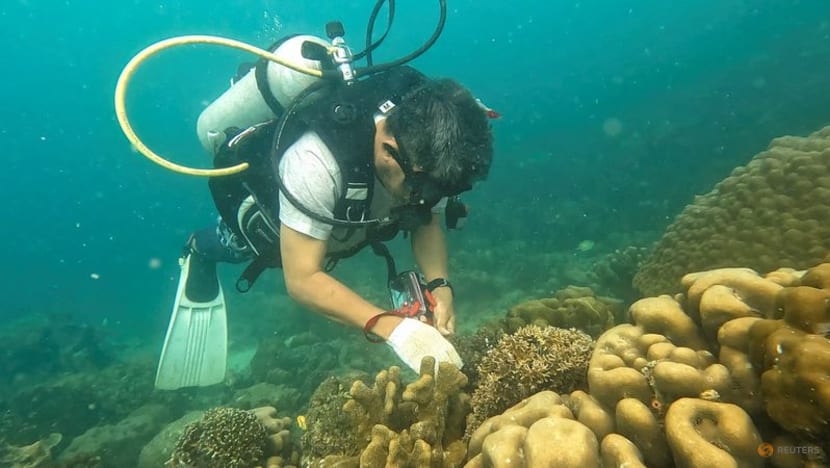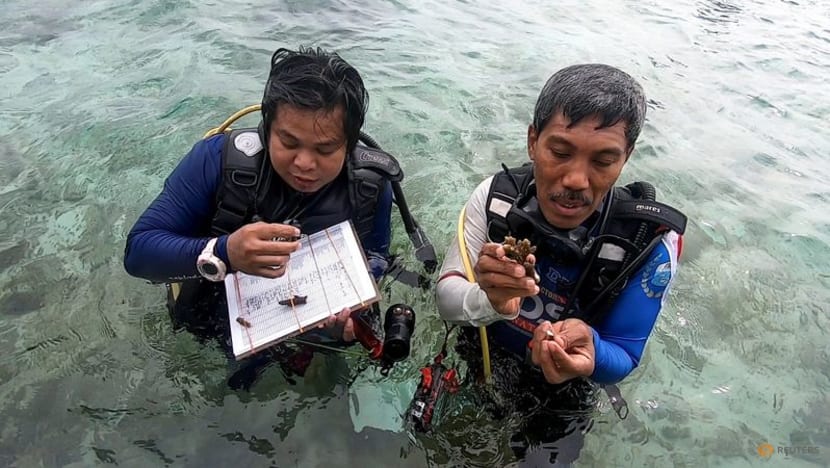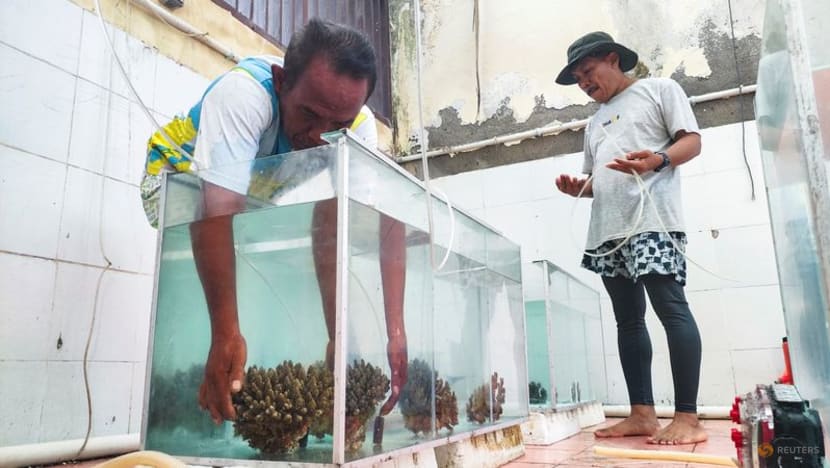Indonesian scientist works with poachers to restore coral reefs

Scientist and lecturer Syafyudin Yusuf, 54, dives as he investigates coral in the waters of Badi Island, South Sulawesi province, Indonesia, on May 29, 2023. (File Photo: Reuters/Rachman Muchtar)
SPERMONDE ISLANDS, Indonesia: For nearly two decades, Indonesian marine scientist Syafyudin Yusuf has worked with former poachers to rehabilitate coral reefs destroyed by their use of dynamite for fishing.
They have restored to health 11.5 hectares of corals around a group of 120 islands known as the Spermonde archipelago in the Makassar Strait off Sulawesi.
Fifteen years ago, only 2 per cent of the area's original reef area remained undamaged, according to research by Makassar's Hasanuddin University, as fisherfolk used explosives and chemicals, which have now been banned.


"We enter their lives and try to influence their ... mindsets to be able to change from destructive fishing to being conservationists," Syafyudin said, adding that his team anchors frames into the seabed to allow corals to grow undisturbed.
Indonesia's roughly 5 million hectares of coral reefs account for a fifth of the world's total, according to Greenpeace.
Experts say coral reefs are crucial to coastal and marine ecosystems, playing a role in preventing erosion and flooding. They are increasingly at risk of dying with oceans warming as they absorb greenhouse gas emissions.










